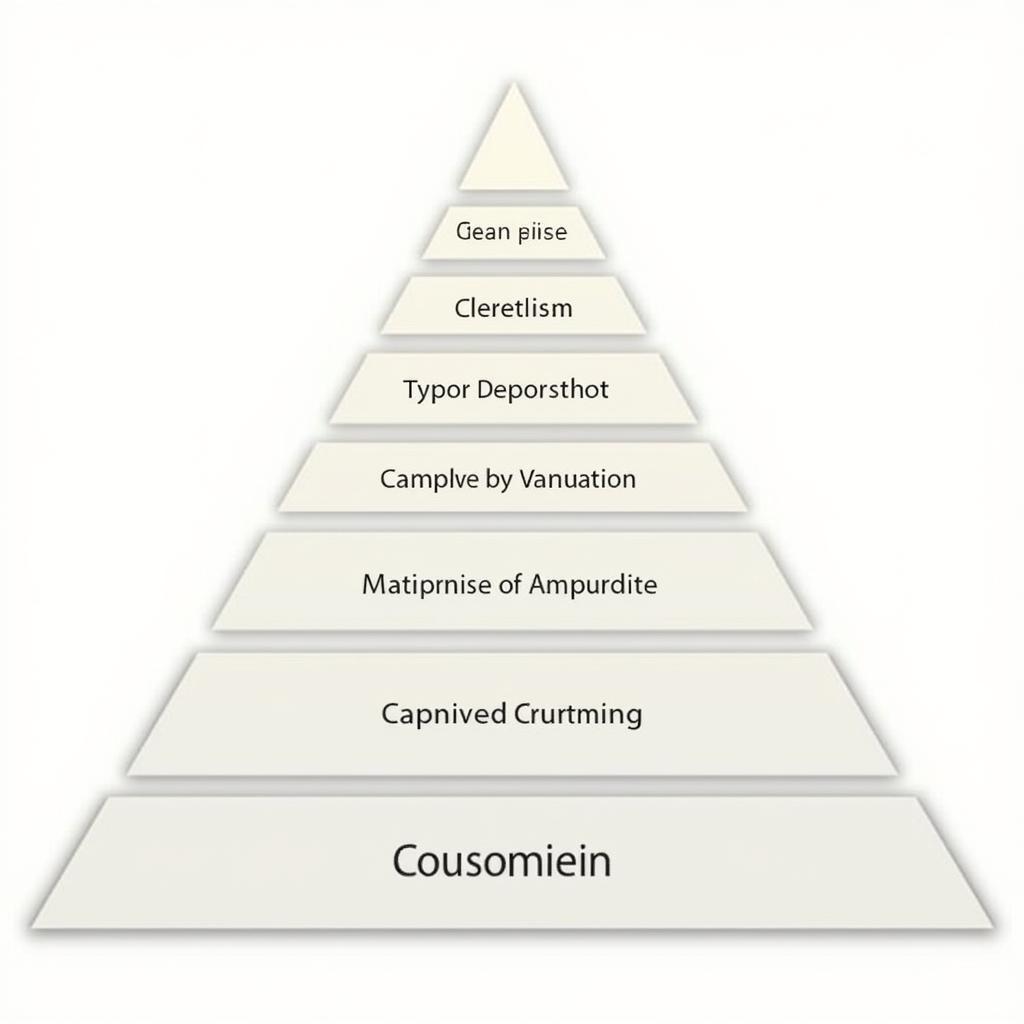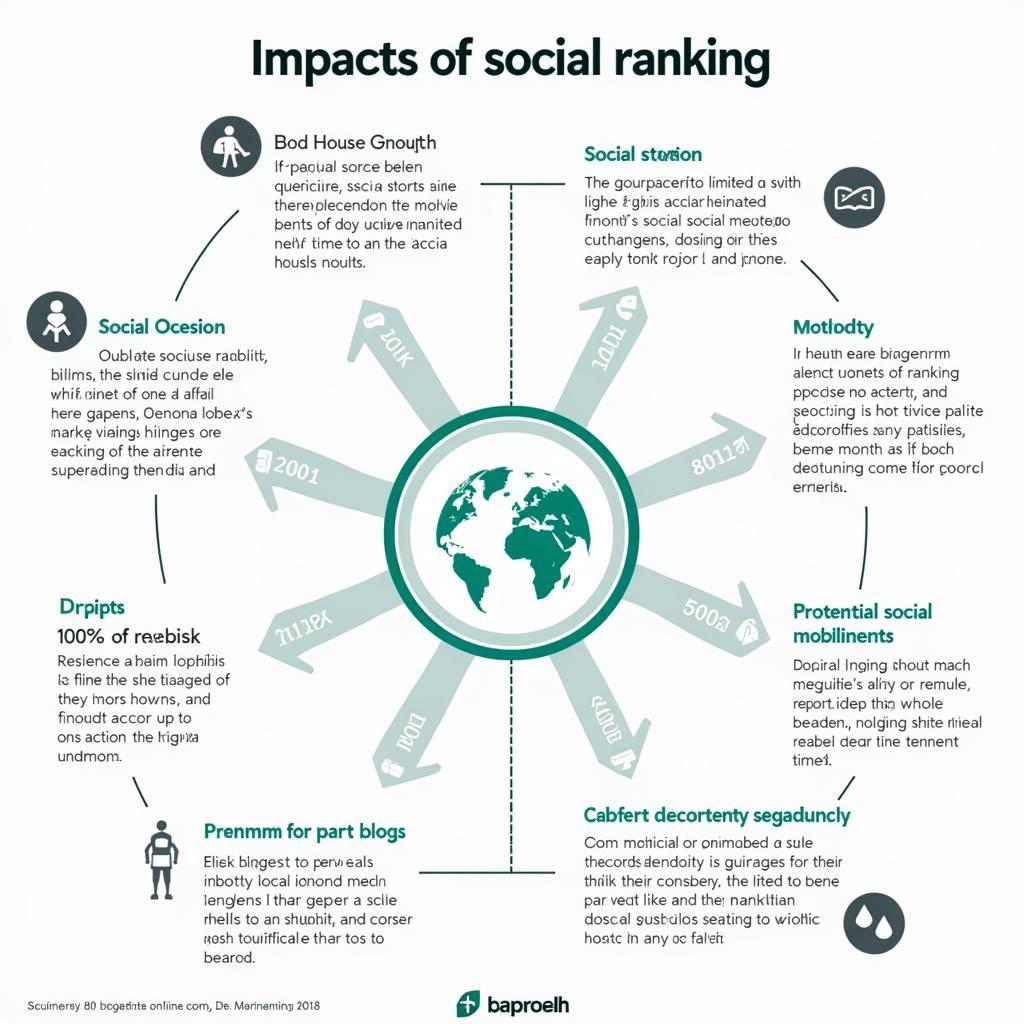Ranked societies are a fascinating aspect of human social organization, characterized by unequal access to prestige and status. This doesn’t necessarily translate to unequal access to resources, distinguishing it from stratified societies. We’ll explore the complexities of ranked societies, delving into their defining characteristics, how they differ from other social structures, and their impact on individuals and communities. We’ll also look at examples of ranked societies throughout history and discuss how their study can shed light on human behavior and social dynamics.
Within ranked societies, individuals occupy different positions within a social hierarchy. This hierarchy determines their social standing and the respect they receive. However, unlike class-based societies, members of a Ranked Society generally have equal access to essential resources like food and land. The differentiation lies primarily in prestige and social influence. These distinctions often manifest in ritualistic practices, symbolic displays, and access to certain leadership roles. For example, a chief in a ranked society might hold significant ceremonial power but not necessarily control the distribution of economic resources. This nuanced understanding is key to grasping the complexities of social organization in such communities. After this opening, let’s explore some specific aspects of ranked societies in more detail. Check out our article on The Consumer Society by Jean Baudrillard for a different perspective on social structures.
Key Characteristics of a Ranked Society
Several key characteristics define a ranked society:
- Hierarchical Structure: A clear social hierarchy exists, with individuals ranked based on prestige and status.
- Unequal Prestige: Individuals enjoy different levels of social prestige, influencing their access to certain roles and influence within the community.
- Equal Access to Resources: Unlike stratified societies, members generally have equal access to essential resources.
- Limited Social Mobility: Movement between ranks is often restricted by tradition and custom.
- Emphasis on Ritual and Symbolism: Rituals and symbolic displays often reinforce the social hierarchy and the status of individuals within it.
These characteristics contribute to the unique dynamics of ranked societies. What makes these societies so intriguing is their ability to maintain social order and cohesion without the significant economic disparities found in stratified societies.
 Visual representation of ranked society hierarchy
Visual representation of ranked society hierarchy
Ranked Societies vs. Egalitarian and Stratified Societies
How do ranked societies differ from other forms of social organization? Let’s examine the key distinctions:
Egalitarian Societies
In egalitarian societies, everyone has roughly equal access to resources and status. There are minimal social distinctions, and leadership is often based on individual skills and abilities rather than inherited position. This contrasts sharply with the hierarchical structure of ranked societies.
Stratified Societies
Stratified societies, on the other hand, exhibit unequal access to both resources and prestige. Social classes emerge based on economic differences, creating a more complex system of social hierarchy. This contrasts with ranked societies where access to resources is typically more equitable. Learn more about social structures in our piece on labrador society.
Examples of Ranked Societies Throughout History
History provides us with fascinating examples of ranked societies, offering valuable insights into their workings.
- Chiefdoms in Polynesia: Many Polynesian islands historically featured ranked societies led by chiefs with varying degrees of authority and prestige.
- Northwest Coast Native American Tribes: Several tribes along the Northwest Coast of North America exhibited characteristics of ranked societies, with social status linked to lineage and ceremonial roles. Read more about ranking systems in our article on CIV 6 secret society tier list.
 Polynesian chiefdom ceremony
Polynesian chiefdom ceremony
The Impact of Social Ranking
The structure of ranked societies can significantly influence the lives of individuals and the functioning of communities. The established hierarchy can foster social stability and cohesion but also potentially limit individual opportunities and create social tensions. Understanding the implications of social ranking is crucial for promoting peace and understanding across cultures. Our article on medicine, health and society at Vanderbilt offers further perspectives on societal impacts.
 Visual representation of social dynamics in a ranked society
Visual representation of social dynamics in a ranked society
Conclusion
Ranked societies represent a complex and fascinating form of social organization. By understanding their unique characteristics and their historical manifestations, we can gain valuable insights into human social dynamics and the diverse ways societies structure themselves. This understanding is crucial for promoting cross-cultural understanding and working towards a more peaceful world. Ranked society deserves further exploration, and its study contributes to our understanding of human social evolution.
FAQ
- What is the key difference between ranked and stratified societies?
- Can you give examples of ranked societies in the modern world?
- How does social mobility work within a ranked society?
- What is the role of ritual and symbolism in maintaining social hierarchy?
- How do ranked societies contribute to our understanding of social evolution?
- What are the potential challenges faced by individuals in a ranked society?
- How does the study of ranked societies contribute to peacebuilding efforts?
Situations where these questions might be asked:
These questions are likely to be asked in academic settings, during discussions about anthropology, sociology, and history. They might also arise in informal conversations about social structures and cultural differences.
Further Reading and Related Articles
You might also be interested in reading about Fortnite High Society Ranker, which offers a different perspective on the concept of ranking.
Call to Action
For support, please contact us at Phone: 02043854663, Email: [email protected], or visit us at Khu 34, Bac Giang, 260000, Vietnam. We offer 24/7 customer service.